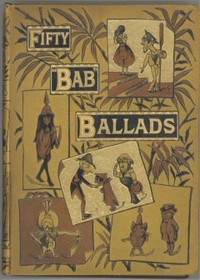Ballad: King Borria Bungalee Boo
byKing Borria Bungalee Boo reigned over his kingdom with more appetite than wisdom, ruling not with justice or diplomacy, but with an endless craving that kept his subjects uneasy. His court had once been filled with noblemen and servants, but over time, that number dwindled—not by rebellion or disease, but by digestion. Only four subjects remained by the time hunger overtook him fully, each marked by their personality and their fear of being next on the menu. Among them, Pish-Tush-Pooh-Bah flaunted self-importance, Doodle-Dum-Dey lumbered with clueless cheer, Alack-a-Dey-Ah wallowed in grief, and little Tootle-Tum-Teh sparkled with bright ideas and loyalty. The king, despite his monstrous reputation, wasn’t evil in the usual sense; he was simply a prisoner of his hunger. And with nothing but his own men left to consume, desperation replaced ceremony, and decisions became grim. That day, dinner wasn’t planned—it was feared. Something had to be done before the king’s gaze turned fatal.
In this bizarre crisis, Tootle-Tum-Teh proved himself more than just a charming name. With the wisdom of someone unwilling to be eaten, he offered a bold alternative—an attack on Queen Tippy-Wippity Tol-the-Rol-Loo’s domain. The idea, while outrageous, was met with cautious optimism. Better to risk the dangers of an external conquest than suffer an internal collapse. The Queen’s state, peaceful and prosperous, seemed ripe for an uninvited feast, and her four Amazons, described with strange culinary admiration, were seen as the answer to King Boo’s relentless appetite. Plans formed quickly, not from strategic brilliance, but from necessity fueled by hunger. Each subject, aware of what inaction could bring, supported the plan without delay. They would rather face a queen and her guards than be served in a stew. It was both cowardly and brave—a survival instinct dressed in the illusion of military action.
Their journey to Queen Loo’s land was filled with the kind of absurdity that only hunger and desperation could produce. Marching without proper equipment, armed with kitchen cutlery and tribal bravado, the king and his companions didn’t look like warriors—they looked like dinner guests who’d mistaken themselves for an army. Still, the mood shifted. What began as a farcical escape from cannibalism became a strange adventure filled with rhythm, chants, and bizarre heroism. Tootle-Tum-Teh led with hope, not experience, and somehow that made the difference. The others followed, if not out of faith, then at least out of fear. At every step, their journey danced between comedy and calamity, a satire of conquest performed by men more suited to serving dishes than battlefield glory.
But the Queen was not without her defenses. Tippy-Wippity Tol-the-Rol-Loo, unlike King Boo, ruled with a sharp mind and steady leadership, and her Amazons were anything but dainty. When the invading party arrived, they were met not with alarm but with laughter—at their names, their weapons, and their very premise. Still, kindness ruled her response. Rather than retaliate or imprison them, she offered hospitality, mistaking their awkward approach for cultural oddity rather than a failed invasion. Meals were shared—not of people, but of proper food—and King Boo, faced with generosity instead of resistance, experienced something rare: contentment. For once, he wasn’t plotting consumption. He was chewing thoughtfully, belly full, temper cooled.
Tootle-Tum-Teh’s plan had worked, though not in the way anyone expected. The conquest became a communion, and the hunger that once devoured diplomacy gave way to peace born from proper nourishment. The Queen’s hospitality rewrote the tale’s trajectory. She fed the king and his men not because they deserved it, but because kindness often achieves what force cannot. This twist gave the ballad its true power: a lesson wrapped in laughter, showing that compassion can disarm even the most dangerous appetites. And so, instead of war or tragedy, the story ended in an unexpected alliance. Queen Loo kept her land, and King Boo, it seemed, had finally found something better than eating his own advisors.
The ballad, though playful and filled with nonsense names, carries real insight beneath its rhyme. It offers a clever critique of leaders driven by personal need at the expense of others, and the absurd lengths people go to preserve themselves under flawed rulers. Through exaggeration, it shows how loyalty can be stretched thin, how reason often gives way to instinct, and how redemption sometimes arrives in the form of an unassuming meal. The tale’s dark humor masks a brighter truth: even in absurdity, dignity can be salvaged. And while no one would aspire to be King Borria Bungalee Boo, everyone can learn from Tootle-Tum-Teh—whose wit, nerve, and sense of decency made survival not just possible, but meaningful.

